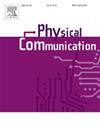Knowledge graph enhanced recommendation for semantic structure construction and feedback in online learning
IF 2.2
4区 计算机科学
Q3 ENGINEERING, ELECTRICAL & ELECTRONIC
引用次数: 0
Abstract
This paper presents a knowledge graph-enhanced recommendation system, inspired by constructivist principles, to address challenges like information overload and fragmented knowledge in online education. The system transforms unstructured information into interconnected knowledge frameworks, facilitating semantic comprehension, personalized recommendations, and cognitive feedback. Aligned with constructivist principles, the platform encourages students to actively construct personalized knowledge structures, enhancing cognitive engagement through adaptive feedback. Experiments with higher education students demonstrate its potential to improve learning interest, knowledge retention, and adaptive feedback, supporting advanced semantic and cognitive learning paradigms.
知识图谱增强了在线学习中语义结构构建和反馈的推荐
本文提出了一种基于建构主义原理的知识图增强推荐系统,以解决在线教育中信息过载和知识碎片化等问题。该系统将非结构化信息转换为相互关联的知识框架,促进语义理解、个性化推荐和认知反馈。该平台与建构主义原则相一致,鼓励学生积极构建个性化的知识结构,通过自适应反馈增强认知参与。在高等教育学生中进行的实验表明,它有可能提高学习兴趣、知识保留和自适应反馈,支持先进的语义和认知学习范式。
本文章由计算机程序翻译,如有差异,请以英文原文为准。
求助全文
约1分钟内获得全文
求助全文
来源期刊

Physical Communication
ENGINEERING, ELECTRICAL & ELECTRONICTELECO-TELECOMMUNICATIONS
CiteScore
5.00
自引率
9.10%
发文量
212
审稿时长
55 days
期刊介绍:
PHYCOM: Physical Communication is an international and archival journal providing complete coverage of all topics of interest to those involved in all aspects of physical layer communications. Theoretical research contributions presenting new techniques, concepts or analyses, applied contributions reporting on experiences and experiments, and tutorials are published.
Topics of interest include but are not limited to:
Physical layer issues of Wireless Local Area Networks, WiMAX, Wireless Mesh Networks, Sensor and Ad Hoc Networks, PCS Systems; Radio access protocols and algorithms for the physical layer; Spread Spectrum Communications; Channel Modeling; Detection and Estimation; Modulation and Coding; Multiplexing and Carrier Techniques; Broadband Wireless Communications; Wireless Personal Communications; Multi-user Detection; Signal Separation and Interference rejection: Multimedia Communications over Wireless; DSP Applications to Wireless Systems; Experimental and Prototype Results; Multiple Access Techniques; Space-time Processing; Synchronization Techniques; Error Control Techniques; Cryptography; Software Radios; Tracking; Resource Allocation and Inference Management; Multi-rate and Multi-carrier Communications; Cross layer Design and Optimization; Propagation and Channel Characterization; OFDM Systems; MIMO Systems; Ultra-Wideband Communications; Cognitive Radio System Architectures; Platforms and Hardware Implementations for the Support of Cognitive, Radio Systems; Cognitive Radio Resource Management and Dynamic Spectrum Sharing.
 求助内容:
求助内容: 应助结果提醒方式:
应助结果提醒方式:


